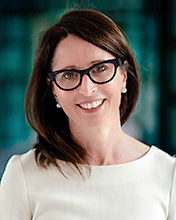Elimination of Racial Discrimination Day
Cara Charles-Barks, Chief Executive21 March 2022

Cara Charles-Barks
Our staff survey data shows that our colleagues from black and minority ethnic backgrounds are more likely to experience harassment, bullying or abuse from patients and the public than white staff.
Similarly, they are more likely to experience unfair treatment when it comes to career progression, more likely to enter formal disciplinary and less likely to be appointed once shortlisted for a role. They are also more likely to experience discrimination at work from their colleagues than white staff.i
In the wider community, people from ethnically diverse backgrounds also face inequality and discrimination in terms of how they access and experience healthcare and in their healthcare outcomes. Sadly, racism, stereotyping, discrimination and cultural insensitivity are still all too familiar experiences for people from ethnically diverse groups accessing NHS care.ii
At the RUH, we know we don't always get it right when it comes to discrimination, victimisation or harassment based on a person's race, or any other protected characteristic, and we are working hard to promote a culture of equality and inclusion as well as civility and kindness. Everyone benefits in an environment where we can all be ourselves without fear of prejudice or judgement about who we are. But this environment is only possible if we all acknowledge when we don't get it right, work together to speak up about racism and challenge it when we witness it happening.
We have recently launched 'Stand By Me' sessions to support staff to recognise and effectively challenge racism, in particular micr-oaggressions, a more covert but equally unacceptable form of racism. The difference between micro-aggressions and overt discrimination, is that people who commit micro-aggressions might not even be aware of them. We all have a responsibility to educate ourselves to ensure we do not engage in this behaviour and know how to constructively challenge it when we witness it.
I also recognise the importance of having strong processes and policies in place to challenge racism from an organisational perspective, particularly when it comes to recruitment, bullying and harassment and disciplinary proceedings where ethnically diverse groups are disproportionately negatively affected. At the RUH, we are carrying out a review of all aspects of our equality, diversity and inclusion work to ensure we are embedding these values into everything we do.
We also continue to work closely with our Fusion Network, which represents ethnically diverse groups at the RUH, to formulate an action plan to improve the experience of these staff and patients, as well as taking part in reciprocal mentoring with senior colleagues along with other representatives from marginalised groups.
I call on our staff, patients and local community to work together to stand up against racism and intolerant attitudes and to ensure the RUH, and our wider community, are places where everyone feels welcome and valued.

